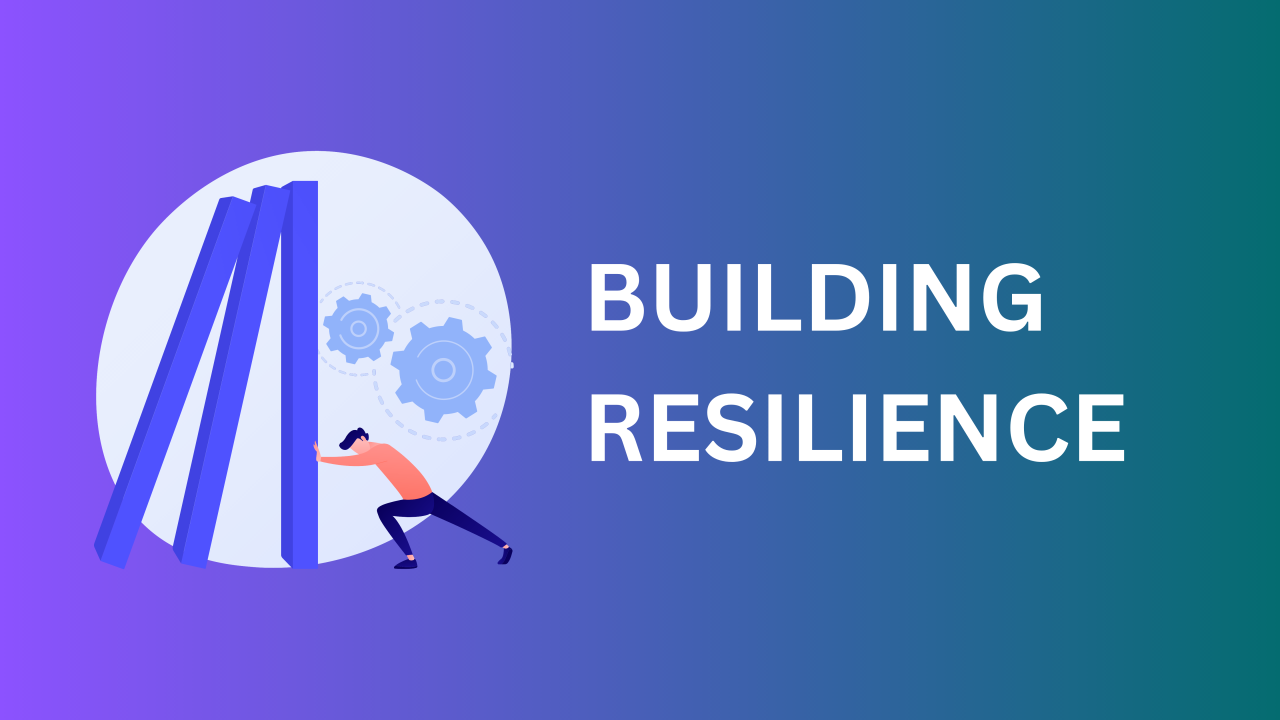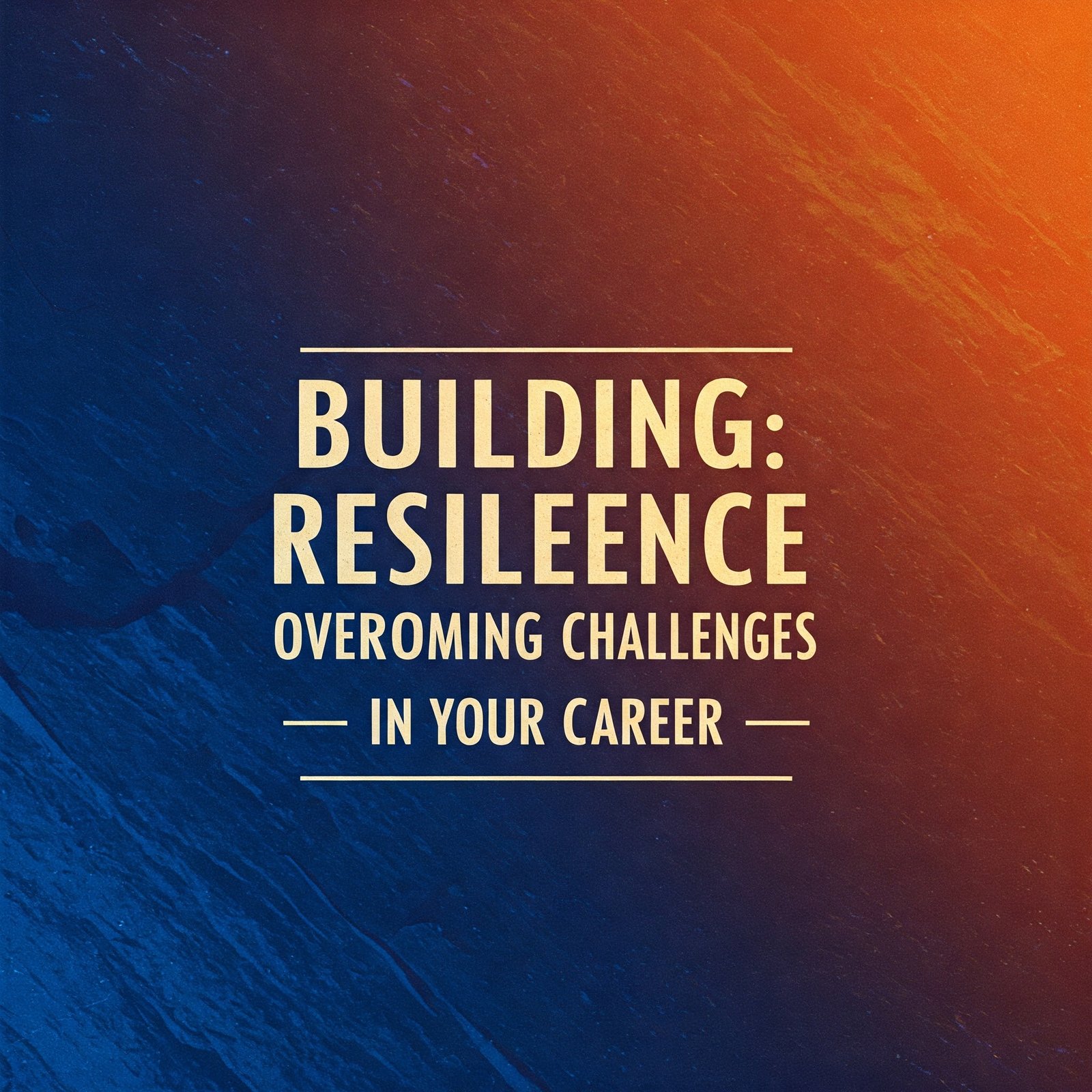Building Resilience: Resilience is a crucial skill in today’s fast-changing and often unpredictable work environment. Throughout a career, professionals encounter setbacks such as job losses, workplace conflicts, and unforeseen challenges. The ability to bounce back from adversity, stay focused on goals, and adapt to changing circumstances determines long-term career success. Resilience is not just about enduring difficulties but about learning from them, growing stronger, and emerging with renewed confidence and determination.
Table of Contents
Understanding Resilience in the Workplace

Resilience refers to the capacity to recover from challenges, maintain a positive outlook, and continue moving forward despite difficulties. In the workplace, resilient employees can navigate stress, handle criticism constructively, and persist through tough times. This ability not only enhances individual performance but also contributes to a positive and supportive work culture. Companies value resilient employees because they are more adaptable, engaged, and motivated.
Resilient professionals are also more likely to take calculated risks and embrace innovation. They see failure as a learning opportunity rather than a setback. Employers recognize resilience as a critical skill, as it leads to higher productivity and better problem-solving abilities.
Common Career Challenges and How to Overcome Them :
Every professional faces challenges at some point in their career. Some of the most common include job loss, workplace conflicts, career stagnation, and burnout. Building resilience helps individuals manage these challenges effectively:
- Job Loss or Career Uncertainty: Losing a job can be a stressful and emotional experience. Resilient professionals take this as an opportunity to upskill, network, and explore new career paths rather than viewing it as a failure. They engage in continuous learning, update their resumes, and leverage online platforms to seek new opportunities.
- Workplace Conflicts: Conflict is inevitable in any work setting. Resilient individuals approach conflicts with a solution-oriented mindset, practicing active listening and maintaining professional communication. They also develop conflict resolution skills, ensuring that differences do not escalate into long-term issues.
- Career Stagnation: Feeling stuck in a job with no growth prospects can lead to frustration. Resilience helps individuals proactively seek new opportunities, acquire new skills, and stay motivated in their professional journey. Taking on new projects, volunteering for leadership roles, and expanding one’s professional network can open new doors.
- Burnout and Stress: Workplace stress can take a toll on mental and physical health. Developing resilience involves setting boundaries, practicing self-care, and prioritizing work-life balance to maintain overall well-being. Employees should recognize signs of burnout early and take proactive measures such as time management, delegation, and relaxation techniques.
Also Read: Networking Strategies: Expanding Your Professional Connections
Strategies to Build Career Resilience :
Building Resilience is a skill that can be developed with conscious effort and practice. Here are some key strategies to strengthen resilience in your career:
1. Develop a Growth Mindset
Building Resilience In Adopting a growth mindset allows professionals to view challenges as learning opportunities rather than obstacles. Those with a growth mindset embrace failures, continuously seek improvement, and remain open to new experiences. This mindset encourages resilience by fostering adaptability and perseverance.
2. Enhance Emotional Intelligence
Managing emotions effectively plays a crucial role in resilience. Emotional intelligence helps individuals regulate their reactions, remain composed under pressure, and build strong professional relationships. Building Resilience High emotional intelligence enables professionals to navigate difficult situations with confidence and maintain positive interactions with colleagues.
3. Strengthen Your Support Network
Having a strong professional and personal support system is essential for resilience. Mentors, colleagues, and friends can offer guidance, encouragement, and different perspectives to navigate challenges. Engaging in professional associations, networking events, and mentorship programs can provide valuable career support.
4. Stay Adaptable and Open to Change
Career landscapes are constantly evolving, and adaptability is key to resilience. Embracing change, learning new skills, and staying informed about industry trends can help professionals remain relevant and competitive. Building Resilience Those who are willing to learn new technologies and explore different career paths are more likely to thrive despite uncertainties.
5. Practice Self-Care and Stress Management
Physical and mental well-being directly impact resilience. Engaging in activities such as exercise, meditation, and hobbies helps reduce stress and improves overall resilience. Prioritizing mental health, maintaining a healthy work-life balance, and seeking professional counseling when necessary are essential for long-term success.
6. Set Realistic Goals and Maintain a Positive Outlook
Setting achievable career goals and maintaining a positive mindset can help professionals stay motivated. Breaking down long-term objectives into smaller steps ensures steady progress and prevents discouragement. Celebrating small achievements and recognizing progress helps maintain confidence and drive.
7. Learn from Failures and Embrace Feedback
Failure is an inevitable part of any career. Rather than fearing failure, resilient individuals learn from mistakes and use them as stepping stones for growth. Seeking constructive feedback and implementing improvements enhance professional development and contribute to long-term success.
8. Develop Problem-Solving Skills
Resilient professionals view challenges as opportunities to enhance their problem-solving abilities. They approach obstacles with analytical thinking, break down complex issues, and develop strategic solutions. Building Resilience Problem-solving skills are valuable assets that can help professionals navigate difficult situations effectively.
Turning Challenges into Opportunities for Growth
Instead of viewing career challenges as roadblocks, resilient professionals see them as opportunities for growth. Every challenge presents a chance to develop new skills, expand networks, and gain valuable experience. By reframing setbacks as learning experiences, individuals can transform difficulties into stepping stones for future success. Facing adversity head-on, learning from mistakes, and continually adapting to change will enable professionals to thrive in any career.
For example, professionals who have faced job losses may find themselves pivoting to new industries or discovering entrepreneurial opportunities. Building Resilience Those who experience workplace conflicts may develop stronger communication and leadership skills. Every setback can be a learning experience that strengthens professional growth and adaptability.
Real-Life Examples of Career Resilience
Building Resilience: Many successful professionals have demonstrated resilience in the face of adversity. For instance, Oprah Winfrey was fired from her first television job but went on to become a media mogul. Similarly, J.K. Rowling faced multiple rejections before achieving global success with the Harry Potter series. These examples highlight the power of resilience in overcoming obstacles and achieving long-term success.
Building Resilience: In a corporate setting, professionals who adapt to changing market trends, embrace digital transformation, and continuously enhance their skills are more likely to remain relevant and successful. Companies that foster a resilient workforce encourage innovation and long-term sustainability.
Conclusion
Building resilience is essential for overcoming challenges and achieving long-term career success. By developing a growth mindset, enhancing emotional intelligence, fostering strong support networks, and practicing self-care, professionals can navigate obstacles with confidence and adaptability. Building Resilience empowers individuals to stay focused on their goals, embrace change, and thrive in their careers, no matter the challenges they face.
Ultimately, resilience is not just about surviving difficulties but about thriving despite them. It is a skill that can be cultivated through experience, self-awareness, and continuous learning. Professionals who build resilience will be well-equipped to handle the uncertainties of the modern workplace and create fulfilling, successful careers.


3 thoughts on “How to Build Resilience and Overcome Career Challenges?”